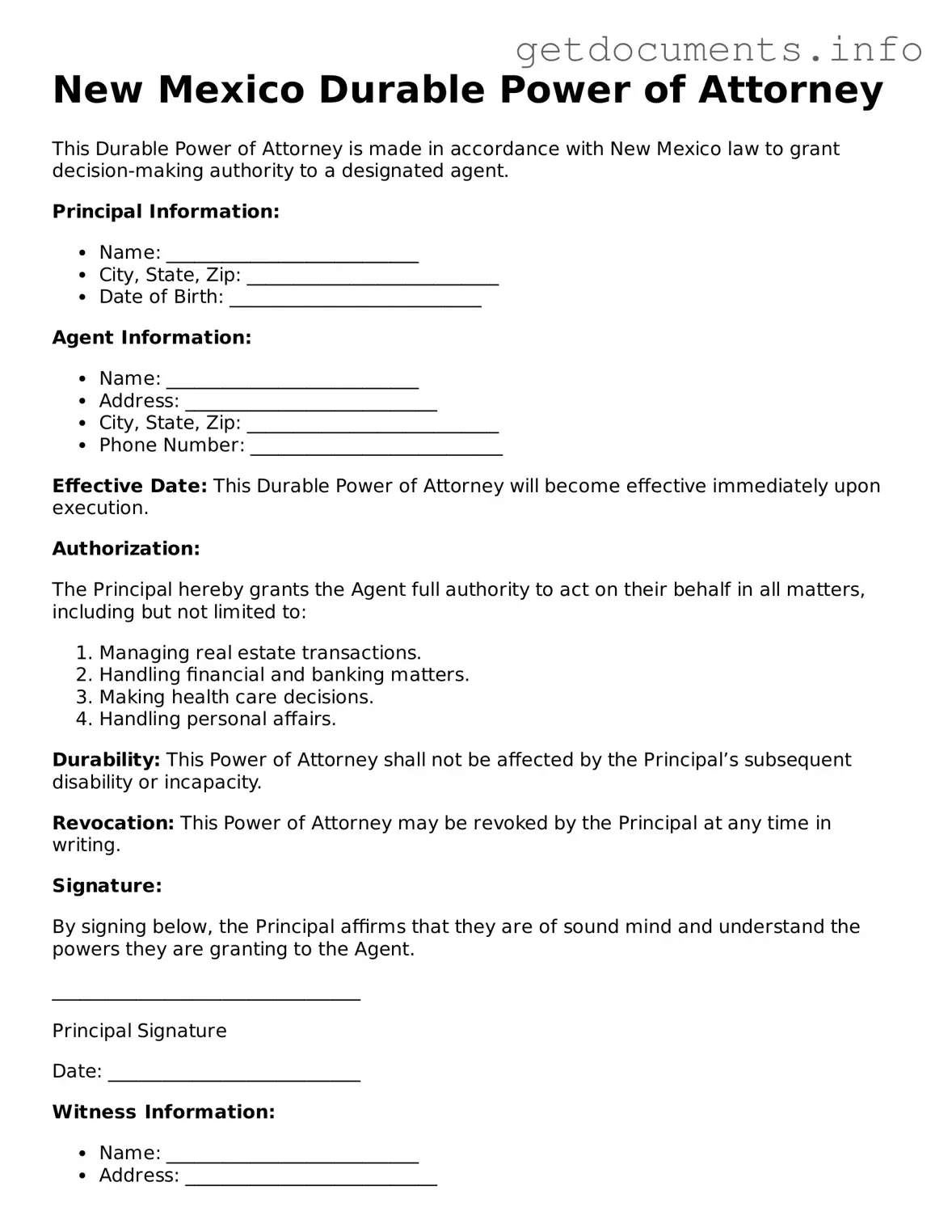Free Durable Power of Attorney Template for New Mexico
A Durable Power of Attorney form in New Mexico allows an individual to designate someone else to make financial or legal decisions on their behalf, even if they become incapacitated. This legal document ensures that your wishes are respected and your affairs are managed according to your preferences. To take control of your future, consider filling out the Durable Power of Attorney form by clicking the button below.
Access Durable Power of Attorney Editor

Free Durable Power of Attorney Template for New Mexico
Access Durable Power of Attorney Editor
Got places to be? Complete the form fast
Fill out Durable Power of Attorney online and avoid printing or scanning.
Access Durable Power of Attorney Editor
or
⇩ PDF File
